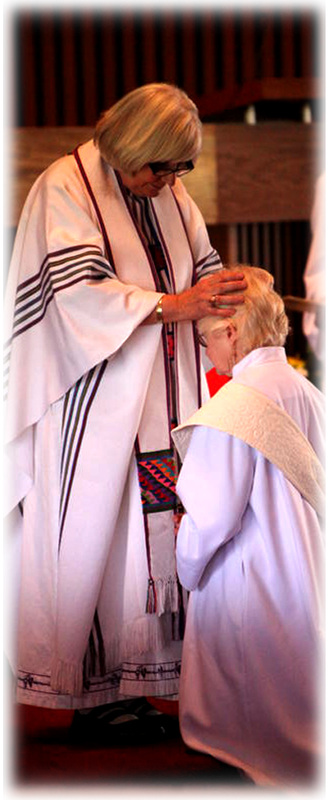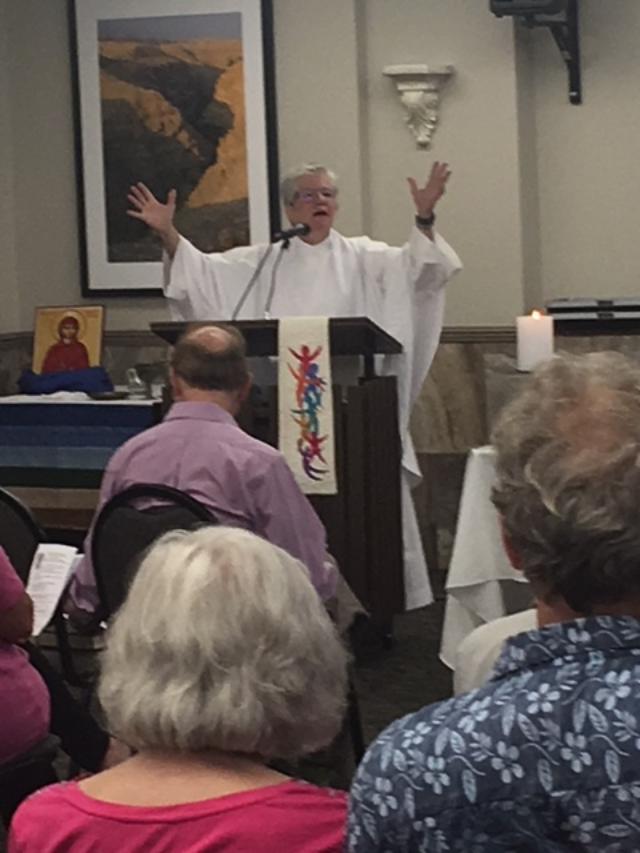July 6, 2025
14th Sunday in Ordinary Time
Helen Weber-McReynolds, RWCP
Isaiah 66: 7-13; Ps. 131; Galatians 6: 2-18; Luke 10: 1-12
“Peace and compassion to all those who follow this law of freedom—in this new community of God’s people.” This was part of Paul’s message to the Galatians in the second reading we just heard. But when I first read it, I thought, “Wow, Paul could be talking to our RCWP community!” We think he was speaking to a community of mostly non-Jewish people, letting them know that they were welcome in the new Christian community. And to that Christian community, everything was a new creation! Signs like circumcision were no longer necessary for membership. What was necessary was carrying one another’s burdens, always doing what was right, and never giving up on the love of God. Living in love so as to help establish the Reign of God among themselves was the essential element. There were no other “in” or “out” criteria.
Which is true of our RCWP communities today also. Everyone is welcome! We ordain women, men and non-binary people. We welcome everyone regardless of their marital status, gender, or sexuality. All are included, and everyone is encouraged to build up the community by sharing, healing, taking care of one another, and generally living out their personal experience of God’s love.
I think that was pretty much the experience of the 72 who were sent out 2 by 2 by Jesus to the towns on the way to Jerusalem. They were most likely not trained experts. We can gauge that by the cluelessness of the 12 apostles at times. But these 72 people had experienced the power of the love of God in their lives, through their exposure to Jesus’ teachings. And that power made them willing to go to speak to strangers, without a planned place to stay or even any money in their pockets, purely on the merit of their personal experiences of the love of God, and their buckets of good intentions. And we know from the chapters following this passage that the healing power of God was with these people, and they were able to transmit the richness of God’s love.
I think we are called like those 72 people today. I think we are asked to bring the power of the love of God we have experienced in our lives to heal people in need around us, any way we can. Usually loving people as God has loved us is what is needed for healing. And we don’t have to worry about any exclusion criteria- God’s healing is for everyone. We can offer God’s peace to anyone, and if they accept it, we can begin the often strenuous work and unselfishness and stretching of ourselves that is necessary to make a difference in their lives.
Our first reading told us, in beautiful feminine images, the truth that God is continually renewing God’s people. God’s love is unlimited, and, like a mother, God always wants what is best for every member of her Creation. God’s peace will be like a river, the reading said, rich like land in a flood plain. Let us work to offer that peace to everyone we encounter, and then open ourselves to transmitting the healing power of God.
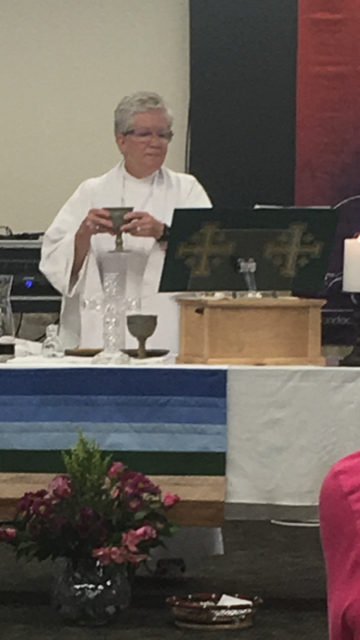
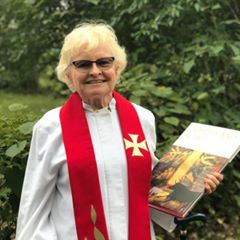
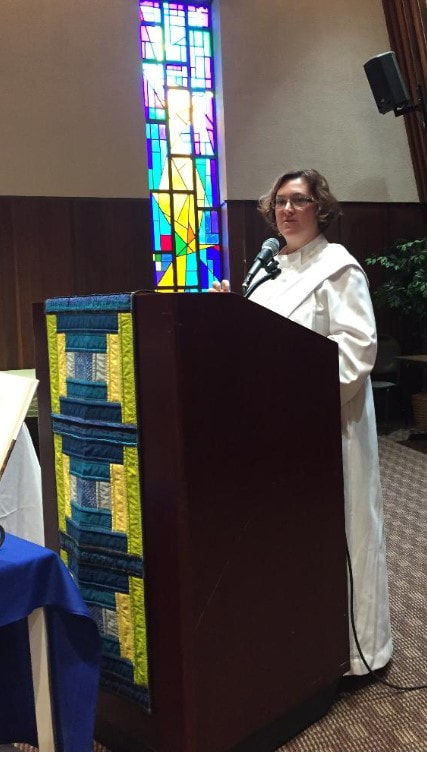
 RSS Feed
RSS Feed
